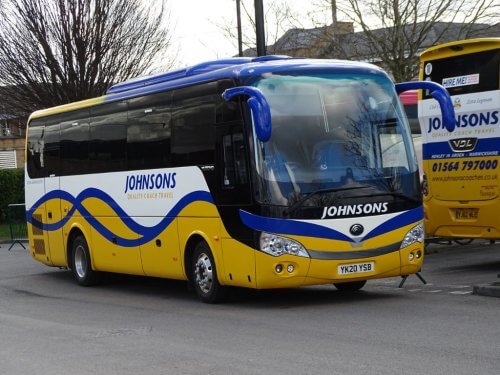
As the coronavirus gains momentum, coach and bus operators are communicating with their customers to ensure them that they are taking the necessary precautions to ensure vehicles are clean and safe for them to travel on
Across the UK, as elsewhere in Europe and the world, public transport operators are finding themselves at the forefront of the battle to contain the spread of coronavirus, whilst coach travel and tour operators are finding their businesses hard hit by uncertainty and cancellations. Most operators have provided information via their websites and social media channels, advising passengers what actions they are taking to control the spread of the virus, and what passengers should do.
FirstGroup’s website provides an FAQ section: “Keeping our employees and the customers we serve healthy and safe is a top priority,” it says, echoing the similar wording of many others. It leads with: “Is it safe to travel on a bus? Yes. The Government has made it clear that neither members of the public nor transport staff are at greater risk of infection from coronavirus when using rail or bus services than in other public spaces.” First says it is continuing with the systematic cleaning of vehicles and facilities, and that whilst there are no current changes to service levels, that may alter as the situation develops, and passengers are advised to keep up to date with local websites and social media. Similar advice was to be found on the Stagecoach website.
In London, TfL has instigated an enhanced cleaning regime across the Tube and bus network, including additional substances that kill viruses and bacteria on contact in order to reduce the risk of coronavirus spreading. It has rolled out enhanced anti-viral fluid, which is used in hospitals, at Tube trains and stations on Friday 6 March to provide added protection and said key interchanges will be cleaned more regularly than usual, including during the day. TfL is also using the enhanced disinfectant in depots and drivers’ cabs, which previously were regularly cleaned with traditional disinfectant, and all buses will now also have regularly touched areas carefully wiped down with a strong disinfectant every day.
In terms of network resilience and recovery, TfL said that passenger figures have dropped, and the key drivers of the reduction appear to be:
- A significant reduction in visitors to London, visible through the traffic on the Tube connecting the airports and central London;
firms asking staff to work from home as part of their resilience planning; and - Continued underlying softness of demand, especially off-peak. This is likely to relate to consumers remaining cautious about their expenditure given the subdued economy and now the impact of Covid-19.
On its website, the operator said: “This is an evolving situation and the financial impact is difficult to predict. This will depend on the duration and severity of the spread of the Covid-19 virus. TfL’s current forecast, based on government scenarios, suggest that this could be a reduction in passenger income of up to £500m.”
Also in the south-east, Ensign tweeted that it had fitted alcohol-based hand sanitser dispensers to all its buses from 11 March, and Westway said on its website that from Saturday 29 February all its vehicles have been equipped with anti-bacterial wipes and hand wash, along with an increase in cleaning measures on board.
Johnsons of Henley-in-Arden followed a similar regime of increased cleaning, and reminded passengers on 10 March that “The clear advice from Government and Health Secretary, Matt Hancock, is for people not to panic and for business to continue as normal, and that the risk to individuals is low. Similarly, the Chief Medical Officer said that there is ‘no clear rationale’ for closing events or cancelling trips in order to prevent the spread of the Covid-19.” The firm went on to reassure passengers that: “We are therefore intending to operate all tours, excursions and show trips; and all coach hire and bus services ‘as normal’ except of course with the above extra precautions and advice on hygiene. We are watching the government website and the FCO website very carefully and intend to follow their advice in all circumstances. We will update these announcements as required.”
Nearby operator Phillips of Bewdley advised that with no Government advice against coach travel, it was business as normal, with extra sanitsiation, taking the precaution of seating passengers as far apart as possible where capacity allows and reminding them to take any rubbish, especially used tissues, off the coach and dispose of them sensibly.
Similar cleaning methods are in place at Blackpool Transport (BT), where it says the doors of its trams will open automatically at stops to avoid passengers needing to touch the button, though they will still need to press the bell to alight. As with all operators, BT said on its website that its services are currently running normally but it will continue to monitor the situation and advise passengers accordingly.

